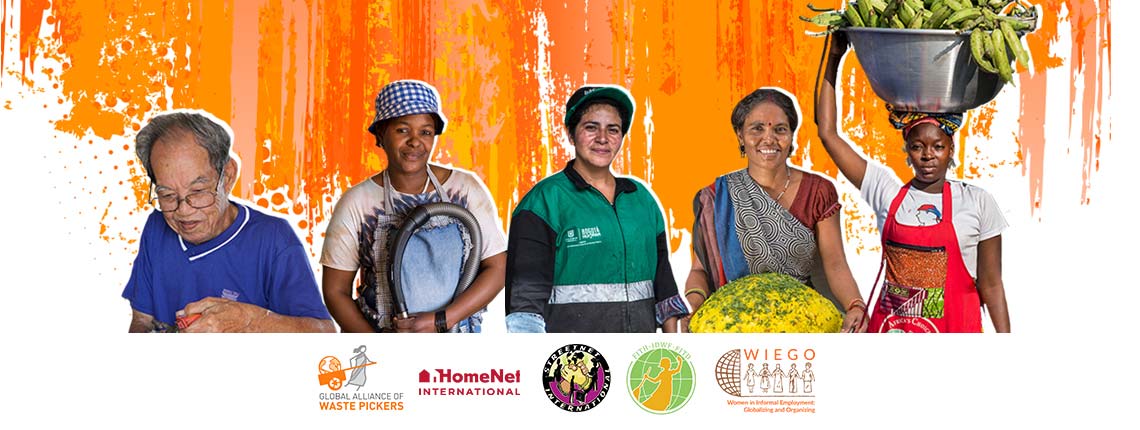
We, organizations of workers in informal employment across the world, call on governments at all levels to partner with us on relief. Informal work accounts for more than 61% of all global employment – some two billion workers – and in developing countries, we make up 90% of total employment. Governments need to take note: there is no recovery without us.
Nearly two years into the pandemic, recovery from the COVID-19 crisis is very slow for workers in informal employment, as data from the global COVID-19 Crisis and the Informal Economy Study reveals. Many workers and their families are experiencing high levels of hunger amidst waning government food and cash relief. To make matters worse, the majority have not recovered their pre-COVID earnings, and debt levels have increased, leaving them at risk of falling deeper into poverty.
On this May Day, we call on governments to partner with workers’ organizations to ensure robust relief, inclusive recovery approaches, and socially beneficial economic principles and practices.
We urge policymakers to:
Do No Harm
Governments can support workers in informal employment right now: to “do no harm” as workers try to rebuild their livelihoods. Governments should issue clear directives to enforcement agents to refrain from harassment, violence, bribery, forced evictions and demolition of workers’ assets, including their homes and workplaces. Special attention needs to be paid to the risks and costs borne by women workers, in particular regarding violence at the workplace and forced payments of bribes.
Recognize the critical role of informal worker organizations in recovery
From the onset of the crisis in 2020, we have called on governments to recognize the essential role workers in informal employment and their organizations have played as economic actors, as frontline workers, and in providing relief as a response to the gaps in national social protection systems. Even before the pandemic, four billion people in the world did not have access to any form of social protection.
Considering their vital role in COVID-19 relief efforts, they must be given an equally important role in recovery. To do so, governments must include workers in key decision-making platforms, ensure that workers’ organizations involved in delivering services to workers are supported financially, and provide support to informal worker organizations that were critical in providing relief to their members when governments fell short.
Promote social and solidarity economy principles
Organized workers in informal employment across the world are committed to making decent work a reality for ALL workers. There is a need to recognize alternative models of work and production, equitable and redistributive, that recognize and value all forms of work – including informal work. Experience has shown that bottom-up models – such as cooperatives, mutual societies, and associations in the social and solidarity economy – contribute to reducing inequality.
The transformation required to achieve such a model is overdue.
Governments need to support worker organizations by adopting enabling policies and laws, working with organizations of workers in informal employment to create support programmes, and providing resources including financial support, information and advice, training, and research. In doing so, governments can build an economy that puts people and communities first, and provides them with sustainable and meaningful jobs and decent working and living conditions.
This year’s general discussion at the 110th International Labour Conference on “Decent work and the social and solidarity economy” should build on the principles for an inclusive definition that recognizes the crucial role of workers in informal employment, with an emphasis on supporting diverse social and solidarity economy models as key drivers of economic and social development.
The undersigned organizations are members of the growing global movement of informal workers and together represent over 2.5 million members worldwide.
International Domestic Workers Federation (IDWF)
Elizabeth Tang, General Secretary
StreetNet International
Oksana Abboud, International Coordinator
HomeNet International
Janhavi Dave, International Coordinator
Global Alliance of Waste Pickers
Lucía Fernandez, Global Coordinator
Technical Support
Women in Informal Employment: Globalizing and Organizing (WIEGO)
Sally Roever, International Coordinator
